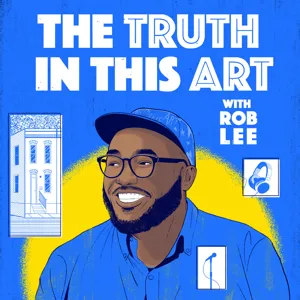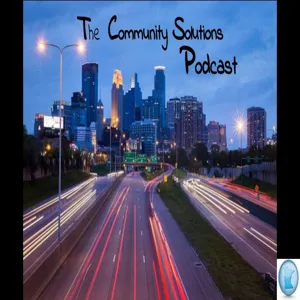Podcast Summary
Inefficiencies in House Building Lead to High Costs: Despite advancements, building houses remains inefficient and expensive due to lengthy processes and numerous steps, including permits and builders, contributing to the overall high cost of housing in America.
The process of building houses in America is inefficient and expensive, leading to high housing costs. This issue has persisted for over a century despite the fact that we've found ways to make other mass-produced items cheaper. If building houses were more factory-based, costs could potentially be reduced. However, the current process involves numerous steps, including obtaining permits and hiring builders, which can result in lengthy timelines and significant expenses. This issue is a significant problem, especially given the high demand for affordable housing. The podcast "Planet Money" explores this topic in depth, sharing historical context and interviews with individuals working to find solutions, such as building houses in factories. The inefficiencies in house building contribute to the overall high cost of housing in America.
Buckminster Fuller's housing revolution inspired by mass production success: Buckminster Fuller, inspired by the affordability of mass-produced consumer goods, aimed to revolutionize housing production through factories to make homes more accessible to working-class families.
Buckminster Fuller, an impractical genius and visionary, went through a personal crisis in the late 1920s and, after contemplating his place in the universe, decided to dedicate himself to mass producing houses in factories to make them more affordable for working-class families. This idea was inspired by the mass production success of consumer goods like cars, which had become affordable due to assembly-line production. Fuller believed that technological progress could improve people's lives, and housing was the logical place to start. His journey began with a background in construction and a belief that the time was right for this idea, as construction costs were high, and people were starting to see the benefits of mass-produced consumer goods.
Buckminster Fuller's Vision of Industrializing House Construction: Despite his best efforts, Buckminster Fuller's vision of mass-producing efficient, round homes in factories did not come to fruition due to economic changes and his unsuitability as a business partner.
Buckminster Fuller's vision of industrializing house construction through factory-built homes did not come to fruition despite his best efforts. This was due in part to the fact that he was not an ideal business partner and the economic climate had changed since he first conceived the idea in the 1920s. By the 1940s, working-class people were able to afford houses due to government subsidies and developers building affordable housing projects. Fuller's futuristic, round, and efficient "Dymaxion House" prototype was built in an aircraft factory during the war's end, but mass production never followed. The house, which featured a springy floor, rotating shelves, and a unique design, was ahead of its time and became known as the house of the future.
Listening to consumer needs is key to factory-built housing success: Success in factory-built housing relies on adapting to consumer demands and preferences, rather than imposing a top-down vision
The success of factory-built homes depends on meeting the needs and preferences of consumers. Buckminster Fuller's vision of futuristic, round-metal houses failed because people didn't want to live in them. On the other hand, Elmer Fry's mobile homes gained popularity by catering to customers' demands for wider trailers, which eventually led to the growth of the mobile home industry. The mobile home story serves as a reminder that a bottom-up approach, which listens to the market and adapts to changing needs, is more likely to succeed than a grandiose, top-down vision. This is a key lesson for anyone looking to innovate in the field of factory-built housing.
The Rise and Fall of Mobile Homes in the 1950s and Beyond: From a popular and affordable housing solution during the 1950s recession, mobile homes declined to just 10% of new single-family homes due to zoning laws, market cycles, and high factory costs.
The 1950s marked a significant shift in housing construction, with the rise of mobile homes built in factories. These mobile homes quickly evolved from small trailers to larger, double-wide units, becoming an affordable alternative for many Americans during a time when traditional home ownership was no longer an option for the masses. By the late 1960s and early 1970s, mobile homes accounted for roughly half of all newly built single-family homes in the US, making it a booming industry. However, the industry faced a major setback during a recession in the 1970s, and today, only around 10% of new single-family homes are built in factories. Brian, an expert on the subject, attributes this decline to several factors, including zoning laws, the cyclical nature of the housing market, and the high fixed costs associated with factory-built housing. Despite these challenges, the efficiency of mass production in factories remains a compelling argument for the future of housing and factory construction.
The Challenges of Factory-Built Housing: Despite improvements in factory-built housing efficiency, the cost savings don't withstand market downturns. Cover focuses on creating high-quality, expensive factory-built homes instead.
While building mobile homes in factories is more efficient than on-site construction, the cost savings are not enough to withstand housing market downturns. The challenges of achieving significant cost reductions through factory-built housing have persisted throughout history. Despite ongoing efforts, no one has yet managed to be the "Henry Ford of housing," producing factory-built homes that are significantly cheaper and changing the industry forever. During an interview for the Bullseye podcast, Alexis Rivas, founder of Cover, a company trying to solve the factory-built house problem, shared his approach. Unlike mobile home companies of the past, Cover is not building cheap homes. Instead, they are focusing on creating high-quality, expensive factory-built homes. During a visit to a Cover job site in LA, the team discussed their goals and the differences between their approach and that of mobile home companies.
Revolutionizing Factory Home Construction: Alexis Caruso's new company aims to revolutionize factory construction by using steel studs, pre-fabricated panels, and an automotive industry approach to electrical wiring, reducing labor and transportation costs.
Alexis Caruso discovered the misconception that factory-built homes equate to significant cost savings and mass production efficiency. Instead, he started a new company with a mission to revolutionize factory construction from the ground up. This innovative approach includes using steel studs and ceilings, pre-fabricated wall, floor, and ceiling panels, and pre-wired electrical connections. By taking an automotive industry approach to electrical wiring, they aim to increase efficiency and reduce on-site labor. The panels are flat and transported on regular trucks, eliminating the need for expensive cranes and equipment. This method, though unconventional in construction, has the potential to revolutionize the industry and provide more cost-effective and efficient home building solutions.
Addressing housing affordability through factory production: Focus on factory production to make house construction faster, reduce labor costs, and increase affordability for the average person.
The housing affordability crisis is not being addressed by building high-end, expensive houses one at a time. Instead, the focus should be on finding ways to make house construction faster and easier through mass production in factories. This could potentially reduce the need for expensive, skilled labor on site and make houses more affordable for the average person. Companies like the one featured in the interview are trying to make progress in this area by continuously sending feedback to engineers to improve the manufacturing process. However, despite a century of trying, mass producing houses in factories remains a challenge. This is a complex issue with many facets, as discussed in the interview "What's Your Problem with Jacob Golden" on NPR. The goal is to make house construction more efficient and cost-effective, similar to how other industries have achieved mass production.
Explore NPR's range of podcasts and news content: NPR provides a variety of podcasts and news content for information and entertainment, accessible for free on NPR.org
NPR offers a range of podcasts to keep you informed and entertained, no matter where you are or what you're interested in. Pop Culture Happy Hour invites listeners to join a lively conversation about current pop culture, while 1A helps listeners navigate the news beyond the headlines. And with NPR.org, you can access all of NPR's rigorously reported news content live and for free. Whether you're looking for entertainment or education, NPR has you covered. So sit back, relax, and let NPR be your trusted companion on your daily information journey.






